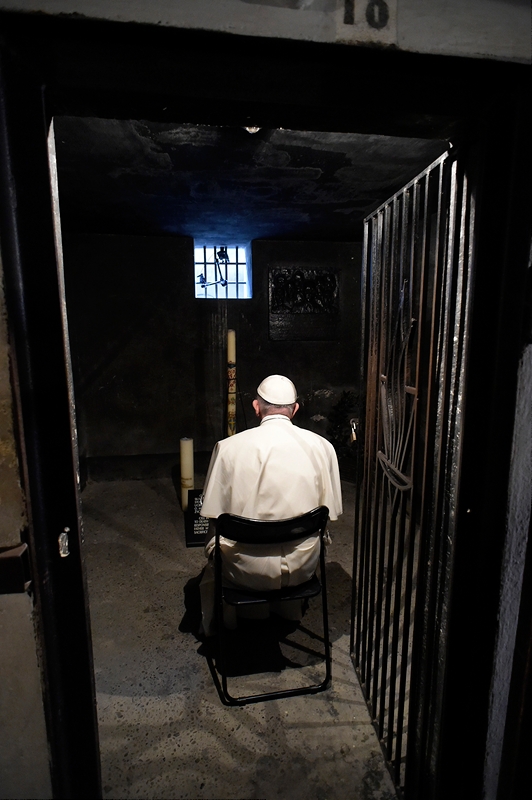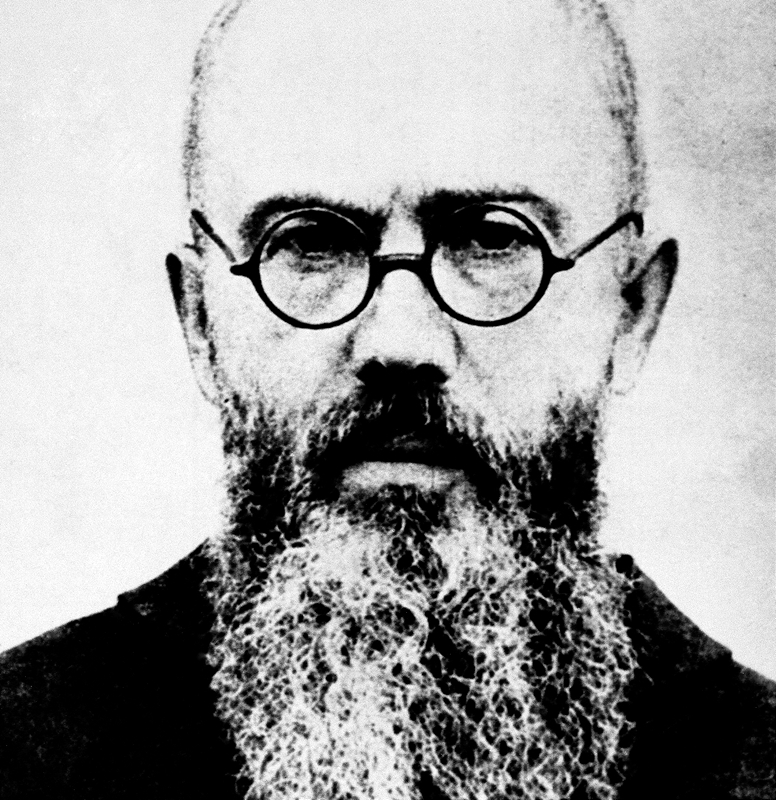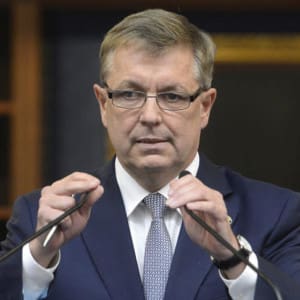It has been 80 years since July 29, 1941, when Saint Maximilian Maria Kolbe volunteered to give his life for fellow inmate Franciszek Gajowniczek, who had been sentenced to death by starvation in retaliation for a Pole’s escape from Auschwitz. Father Kolbe died in a starvation bunker on August 14 1941 and was finished off with a phenol injection administered by a German criminal.
A few weeks prior to his death, Kolbe told fellow inmate Józef Stemler: “Hatred is not the creative force. Love is the creative force.”
Kolbe was sent to Auschwitz on May 28, 1941, from a transition camp in Warsaw. In Auschwitz, he was given prison number 16670.
At the end of July 1941, Zygmut Pilawski escaped Auschwtiz. As punishment, the camp’s deputy commandant Karl Fritzsch ordered an assembly. During the assembly, he chose 10 prisoners and sentenced them to death by starvation. One of them was Franciszek Gajowniczek, who remembered the day as follows:
“Bad luck had struck me. I said, ’I feel sorry for my wife and children, who I am orphaning’ and went to the end of the block. I was to go to the death cell. Father Maximilian heard those words. He stepped out of the line, approached Fritzsch and attempted to kiss his hand. He expressed a desire to die in my place.”
Execution through starvation was feared by prisoners. Following the escape of a prisoner from their block, the commandant or camp director would choose 10 or more prisoners. They were imprisoned in a cell beneath one of the blocks. They were not given any food or water and would experience an excruciating death over the next several days.
After two weeks of suffering, father Kolbe was still alive. On August 14 he was killed by German prisoner-criminal Hans Bock, who injected a lethal dose of phenol.
Franciszek Gajowniczek survived the war. He died in 1995 in Brzeg, Poland at the age of 94.
Maximilian Kolbe (born Raymond Kolbe on October 8, 1894) had lived a life full of travel. He joined the Franciscan Order in 1910 and adopted the name Maximilian. He studied in Rome and established the Knighthood of the Immaculate association in 1917. In 1927, he founded the Niepokalanów publisher monastery. He left for Japan in 1930 but returned to Poland in 1936 and took over the monastery’s leadership. Niepokalanów became the largest Catholic monastery in the world.
After the war’s outbreak, Kolbe and other Franciscans were arrested by the Germans in September 1939 but were released in December 1939. He was once again arrested on February 17, 1941 and then was sent to Auschwitz.

Kolbe was beatified by Pope Paul VI in 1971 and canonized by John Paul II in 1982. He was the first Polish martyr from the Second World War to become a saint. Three popes have prayed in the cell in which Kolbe was killed: John Paul II, Benedict XVI, and Francis all went on pilgrimages to Auschwitz-Birkenau.






